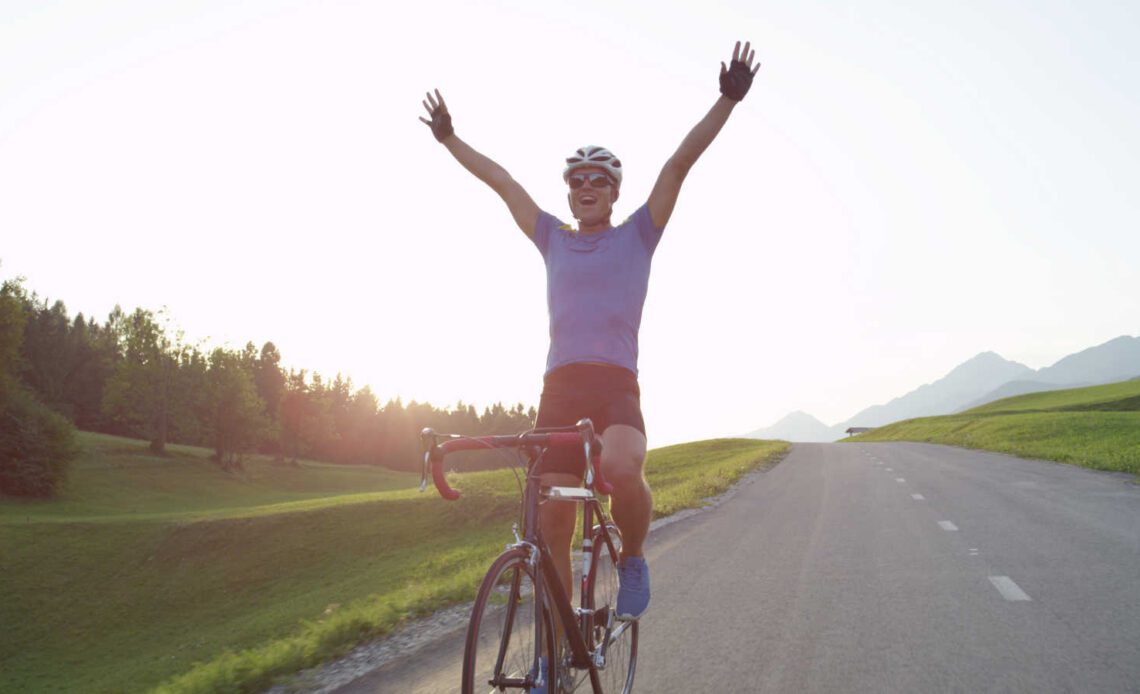Riding with no hands on the bars is useful for riding at all levels. Whether you want to give your back a break or take off a jacket without having to stop, it’s something that will come in handy. It can also be exhilarating to ride hands-free! If you’ve been riding indoors mostly or simply never mastered the skill, no worries. It’s something you can learn with a bit of practice. Here’s how to ride hands-free, just like the pros do.
1. Find a suitable spot to practise
You’ll want a safe and open space with little to no traffic for your practice sessions. That could be an empty parking lot, a quiet street, or a dedicated bike path. What you don’t want are crowded areas or places with potential hazards such as potholes or debris.
2. Progress gradually
Begin by riding with one hand lightly on the handlebars while keeping the other hand ready to regain control if necessary. Then, gradually increase the duration and distance of one-handed riding to build your confidence and stability. By doing this, it will help you develop a sense of balance and control with your weight centered over the bike.
3. Positioning is key
It’s important that you maintain the correct body position when riding with no hands. That means you need to keep your weight balanced over the bike and centered between the wheels. Don’t forget to relax your upper body and arms while maintaining a slight bend in your elbows. Lastly, engage your core muscles to help stabilize your body while riding.
4. Release the hands
Once you become comfortable riding with one hand, it’s time to release the other hand. Lift one hand momentarily off the handlebar while keeping the other hand lightly gripping the bar. When you’re doing this, focus on keeping your body balanced and stable. Then, gradually increase the duration of the hand release as you gain confidence.
4. Balancing and Steering
Once you have successfully released one hand, focus on maintaining balance and steering control using subtle weight shifts and body movements. It is key to pay attention to your body’s positioning and the bike’s response to maintain a smooth and stable ride. You should also be cautious of overcorrections and keep your movements gentle and controlled.
4. Keep practising!
Consistent practice is the key to mastering riding with no hands. But maintain awareness of your surroundings and be prepared to regain control by placing your hands back on the handlebars when necessary. What you don’t want…
Click Here to Read the Full Original Article at Canadian Cycling Magazine…

